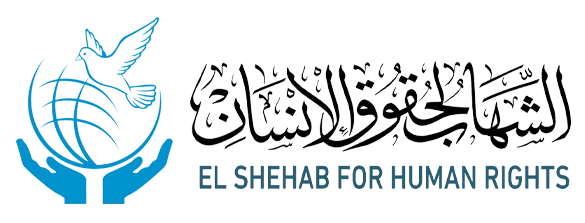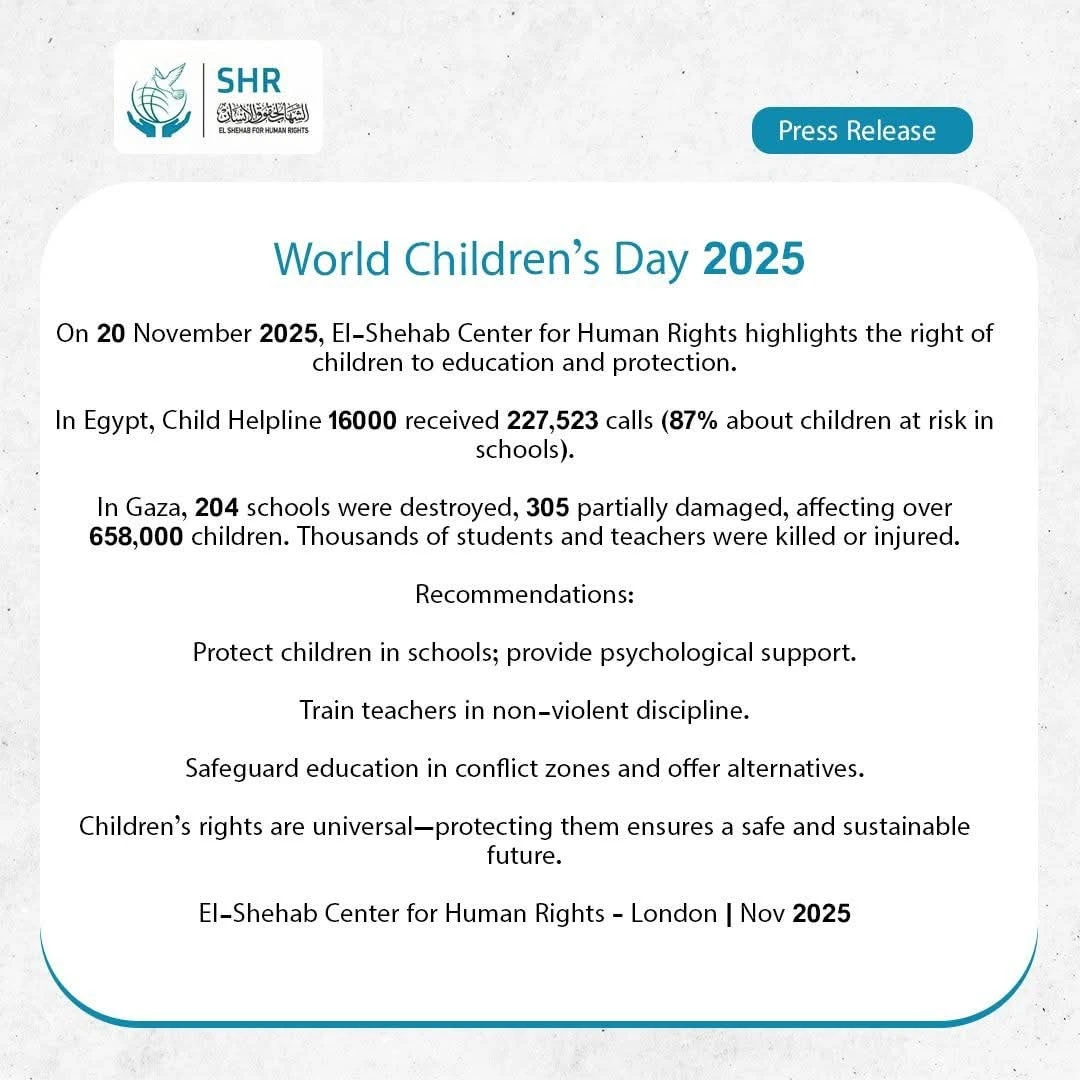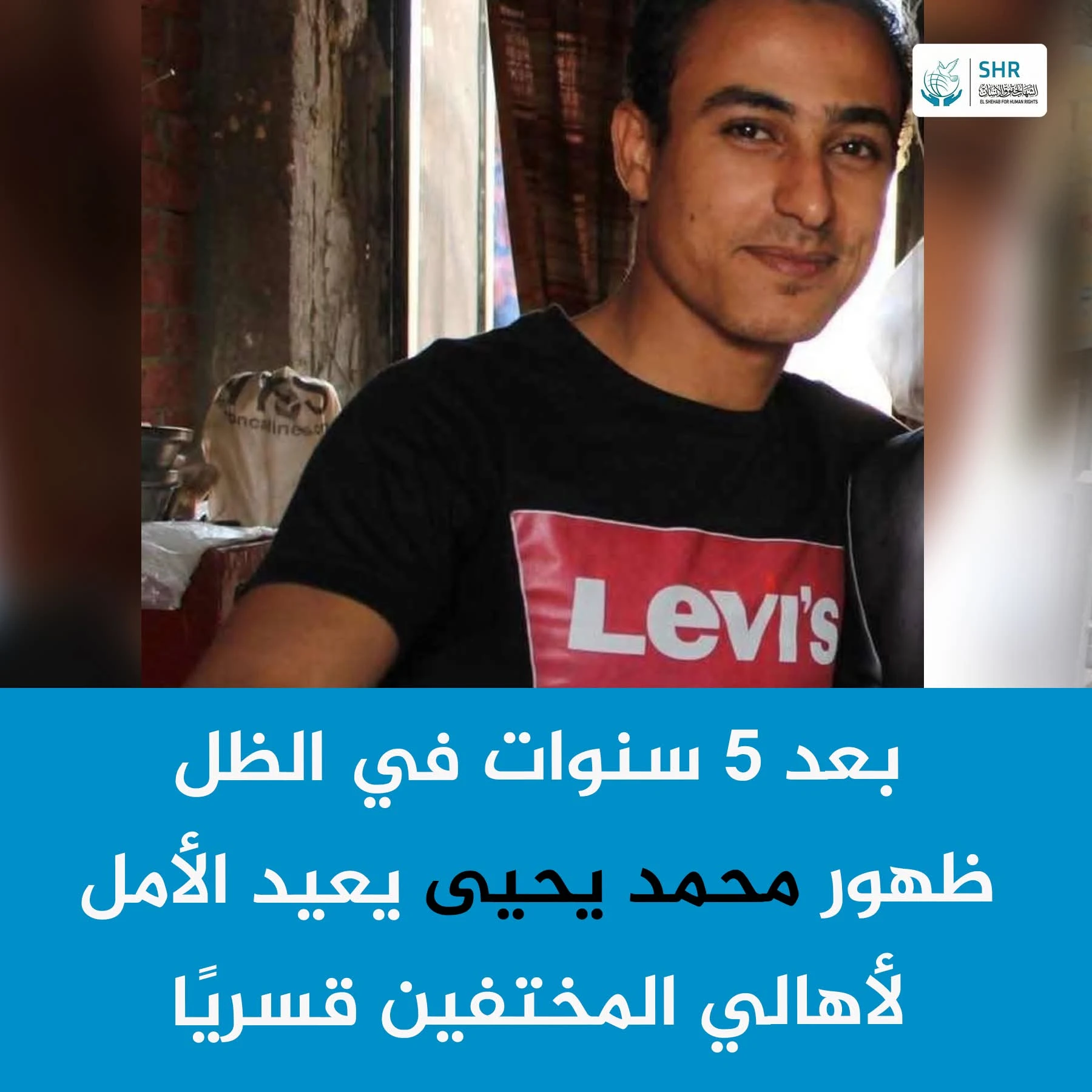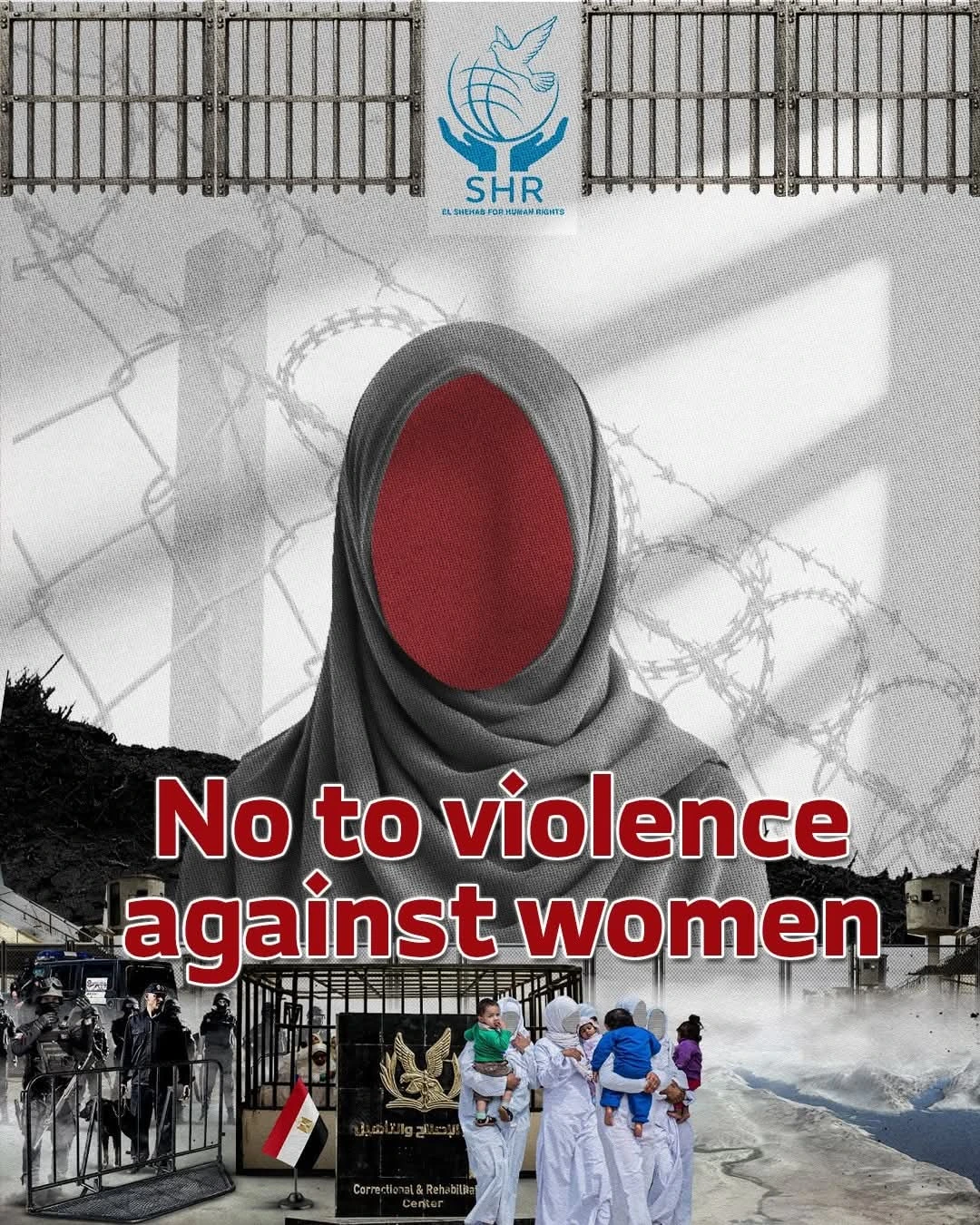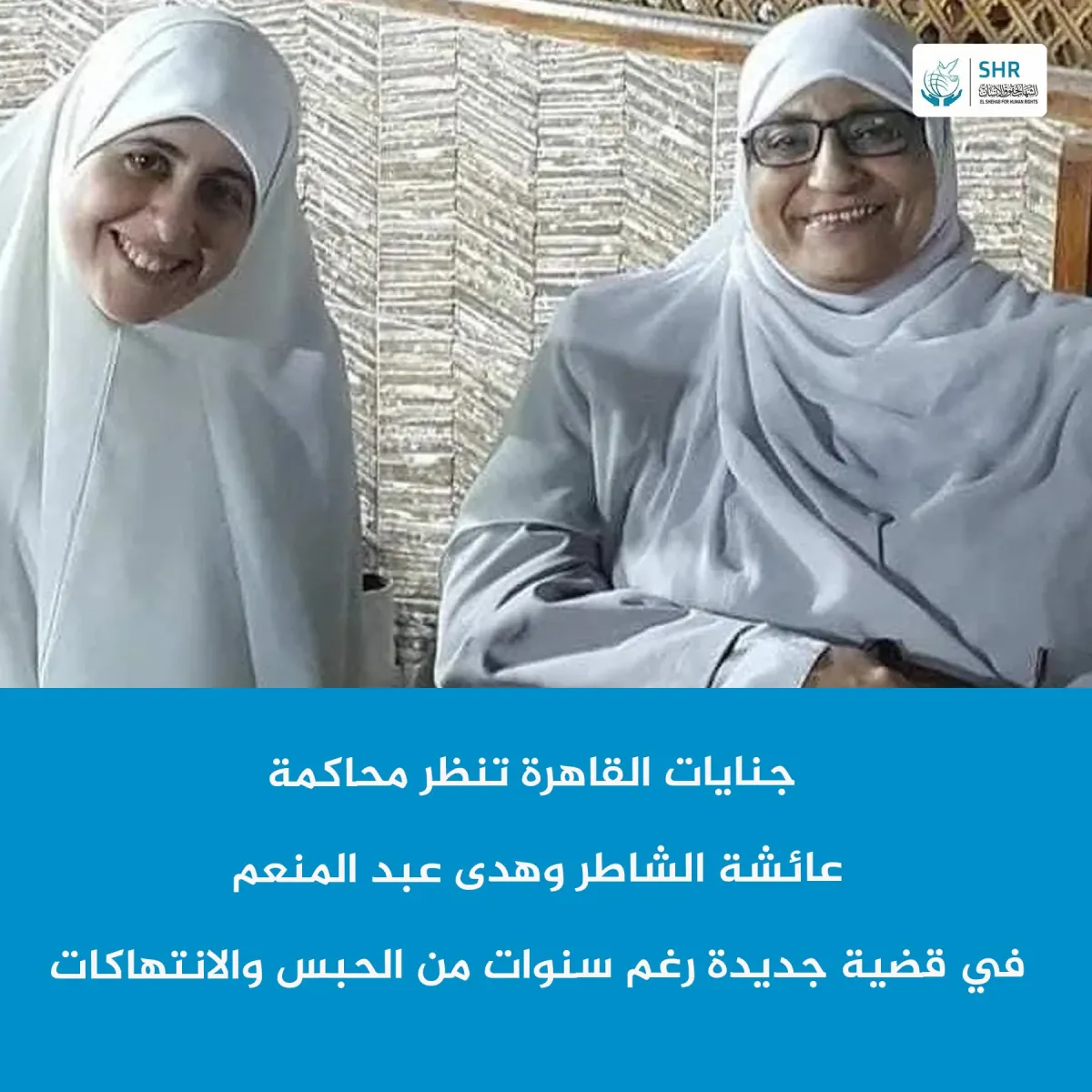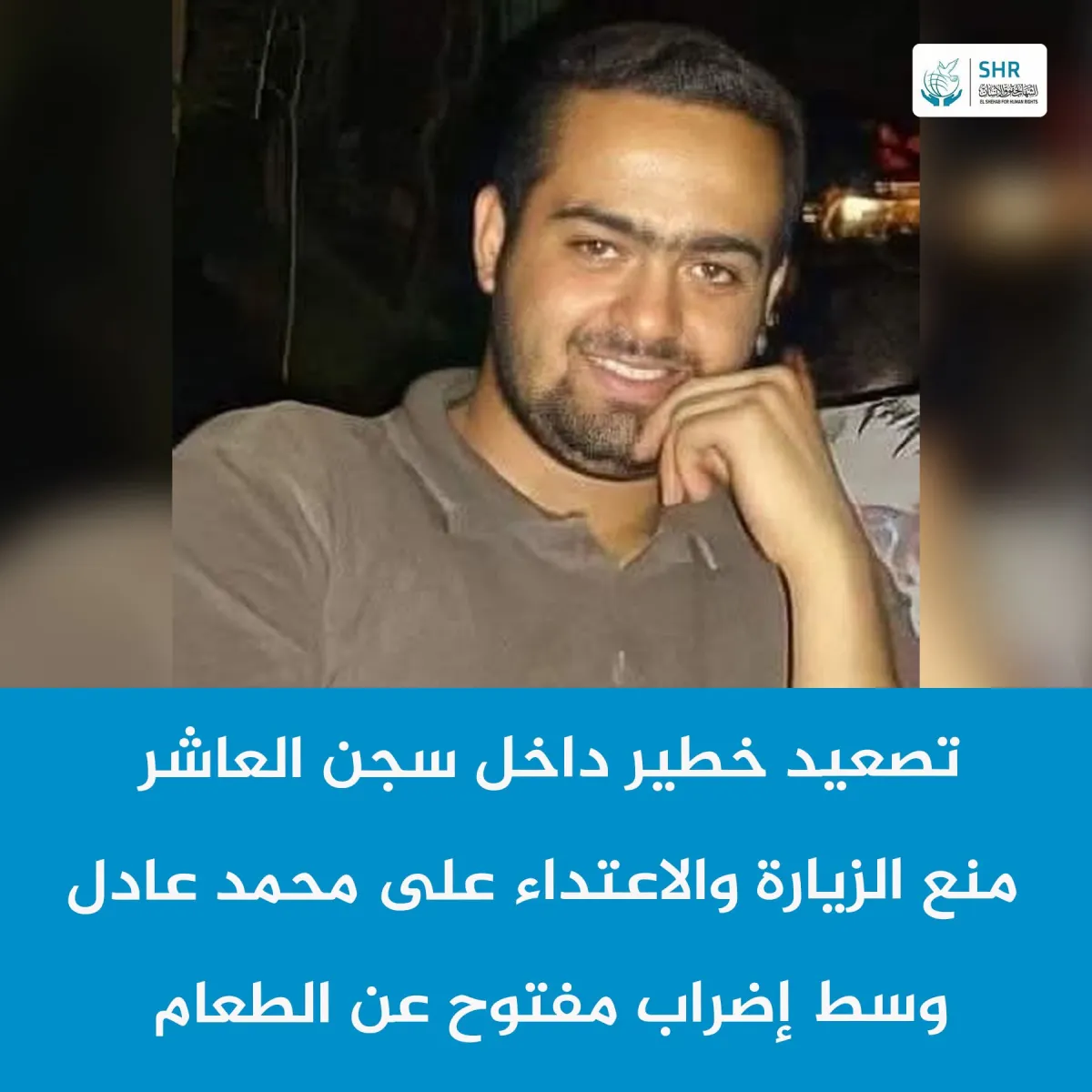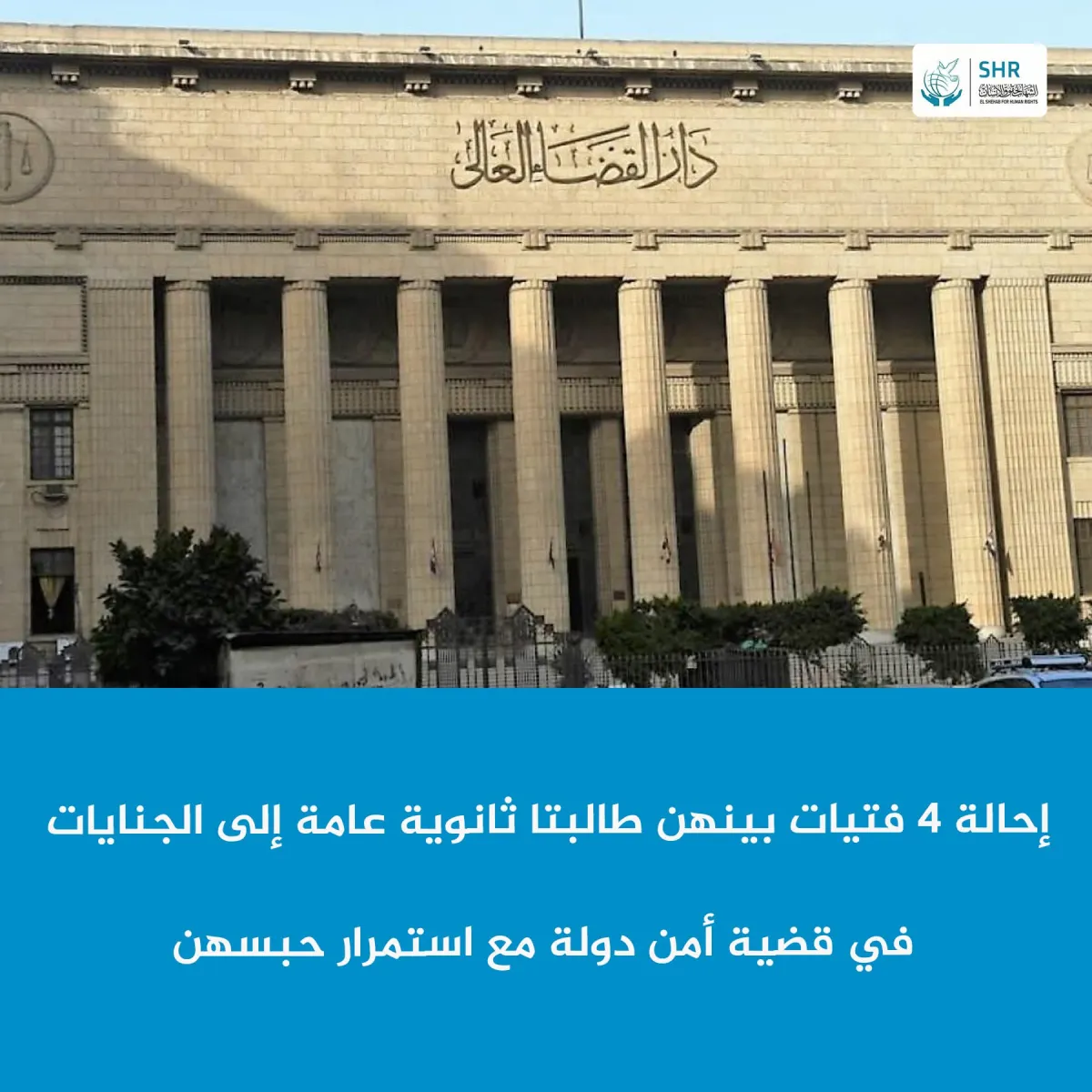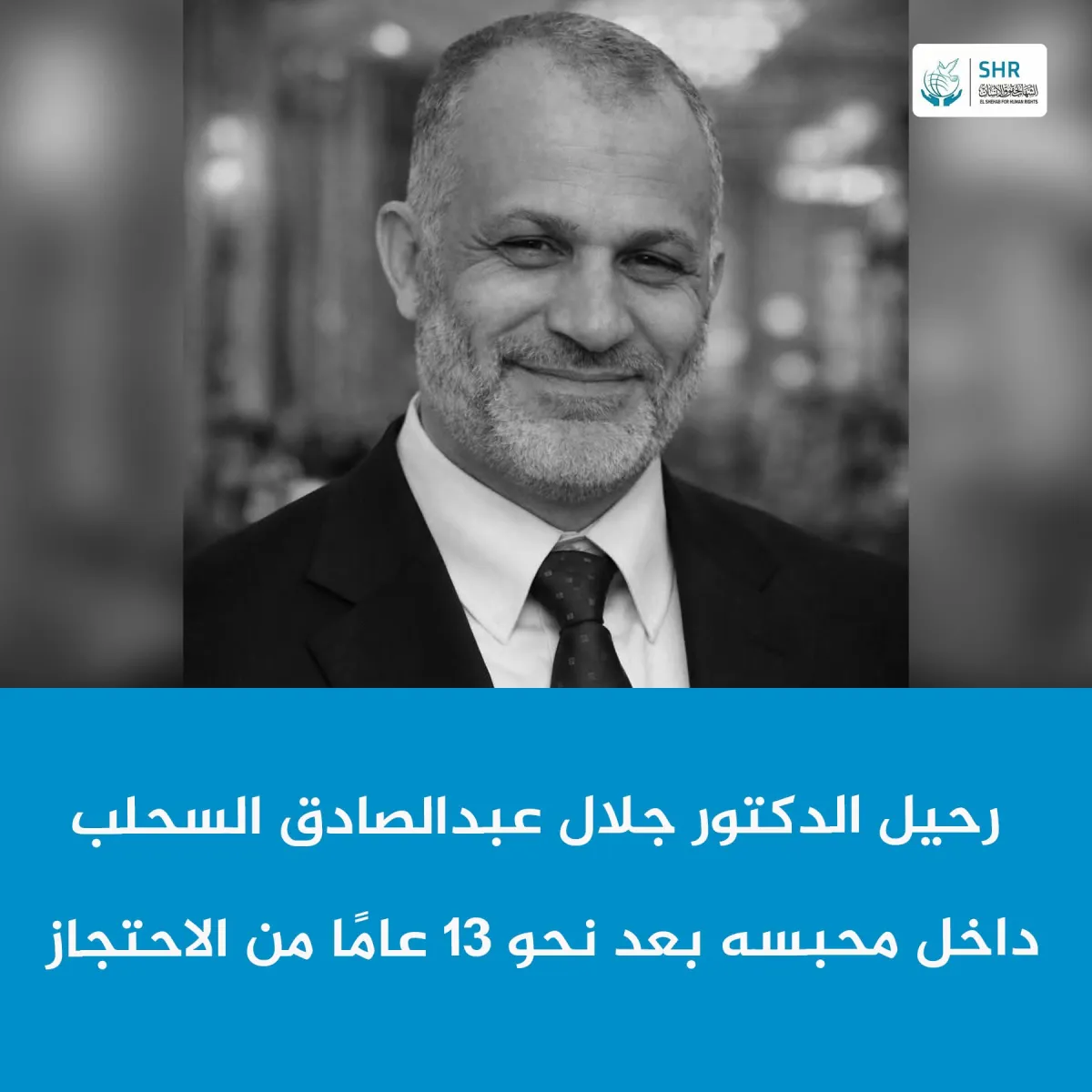World Children’s Day 2025 Statement
Childhood Security and Protection: Egyptian Figures and a Message of Solidarity with the Children of Palestine
On the occasion of World Children’s Day, observed globally on 20 November 2025, and in recognition of the renewed call this day represents to advance and protect children’s rights, El-Shehab Center for Human Rights issues this statement in line with the principles affirmed by the Convention on the Rights of the Child, as well as the declarations of UNHCR and UNICEF. These principles aim to strengthen and guarantee children's right to education by establishing clear and binding standards to protect this right, especially in contexts of crisis and armed conflict.
The absence of quality education represents one of the most significant structural barriers to achieving sustainable peace. It perpetuates cycles of violence and instability across generations, widens the inequality gap, increases poverty, and deprives vulnerable groups of opportunities for social and economic participation. These conditions fuel marginalization and heighten the likelihood of communal violence. When the educational system fails to provide critical thinking skills, tolerance, and conflict resolution, children become more vulnerable to recruitment into armed conflicts and to adopting extremist and hateful ideologies.
In the Egyptian context, the consequences of inadequate education extend beyond academic impact to include severe psychological and social repercussions. Children become more exposed to bullying, school violence, and ill-treatment within educational institutions. These conditions lead to serious setbacks, including cases of suicide or engagement in criminal behavior—threatening societal stability and undermining prospects for building sustainable peace.
In this regard, Child Helpline 16000, affiliated with the National Council for Childhood and Motherhood, received 227,523 phone calls between January and June 2025—an average of 1,243 calls per day. The hotline also recorded 11,644 complaints, requests for help, or service inquiries, averaging 65 reports daily. Notably, 87% of all calls were requests for support for children in situations of danger—an unmistakable indicator of the scale of violations children face within Egypt’s school environment.
If the lack of quality education weakens the foundations of sustainable peace and undermines society’s ability to build a secure future, the situation becomes even more dire in regions experiencing conflict or armed violence. In such environments, the collapse of the right to education becomes starkly evident: schools are targeted or transformed into military sites; children drop out due to fear and insecurity; families are displaced; teachers and students are uprooted; and educational infrastructure is destroyed. Internal displacement, one of the gravest consequences, forces children to leave their schools and relocate to shelters—exacerbating dropout rates and deepening educational disparities.
Palestine stands as a tragic example of this reality, with the education system suffering horrific violations amid ongoing armed conflict.
According to an investigative map prepared by “Al Jazeera Investigates” in September 2025, the Israeli war on the Gaza Strip left no educational facility intact. Hundreds of schools and universities were completely or partially destroyed across the governorates of the Strip.
The analysis confirms that the targeting of educational institutions—beginning in the early months of the war—was systematic and continuous, threatening the future of thousands of Palestinian students.
The investigation revealed shocking figures reflecting the scale of the educational catastrophe: 204 educational institutions were completely destroyed, including 190 schools and 14 universities, while 305 were partially damaged, among them 293 schools and 12 universities. (Al Jazeera)
The war devastated the educational environment. According to the Government Media Office, more than 785,000 students across various educational levels have been deprived of schooling. More than 19,000 students were killed and around 29,000 injured. Over 1,000 teachers and administrators were killed, more than 230 academics lost their lives, and more than 1,420 others were injured. (Anadolu)
Additionally, UN and UNESCO reports indicate that between 7 October 2023 and 2025, 403 out of 564 school buildings were targeted. Among these, 85 schools were completely destroyed, and 73 lost at least half of their structural integrity, affecting 435,290 students and 16,275 teachers. As a result, more than 658,000 children were denied access to a functional education system. Some schools were converted into shelters for displaced people—yet even these shelters were not spared, with approximately 62% of school buildings used as shelters targeted directly.
Recommendations
El-Shehab Center for Human Rights presents the following recommendations based on available data, documented testimonies, and field observations, in alignment with international frameworks and UN standards for protecting children and ensuring their right to education. These recommendations aim to enhance national responses, strengthen protection mechanisms, and guide the adoption of policies consistent with global best practices in both stable environments and conflict zones.
At the national level, the Center recommends:
• Ensuring child protection within educational institutions through activating rapid-response units for incidents of violence and bullying.
• Training teachers in non-violent disciplinary approaches.
• Integrating psychological support programs within schools.
• Developing clear legislation that criminalizes school-based violence and ensures safe, child-centered educational environments.
• Establishing transparent mechanisms to monitor school dropout rates and document violations.
In conflict-affected regions, the Center emphasizes:
• Protecting schools from military targeting and upholding the Safe Schools Declaration.
• Securing humanitarian corridors for students.
• Providing alternative education models such as temporary classrooms and digital learning platforms.
• Supporting psycho-social programs for affected children.
• Strengthening the role of international organizations in documenting violations against educational institutions, criminalizing the recruitment of children, and ensuring their reintegration into education without discrimination—recognizing education as a critical line of defense for safeguarding children’s futures in conflict settings.
Children’s rights are human rights—universal and non-negotiable. Upholding these rights is our compass toward building a better world today, tomorrow, and for generations to come.
El-Shehab Center for Human Rights – London
November 2025
